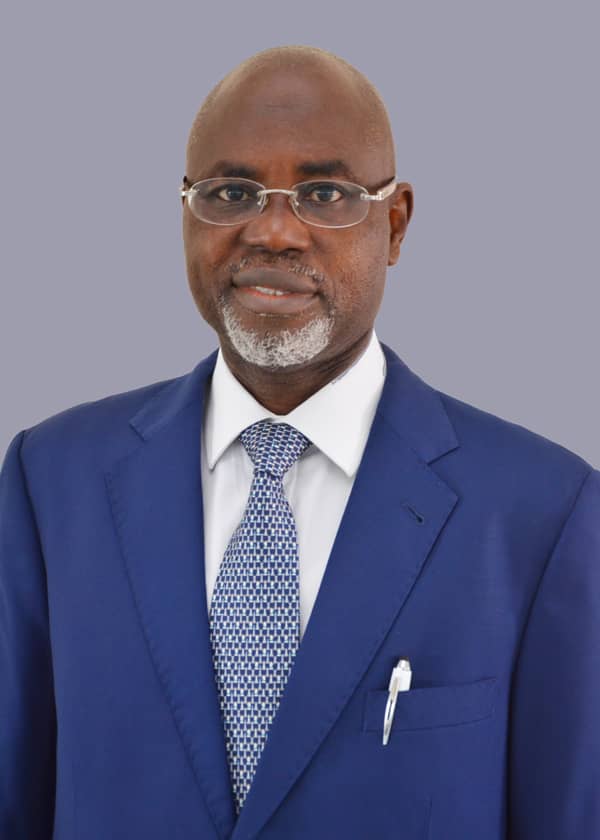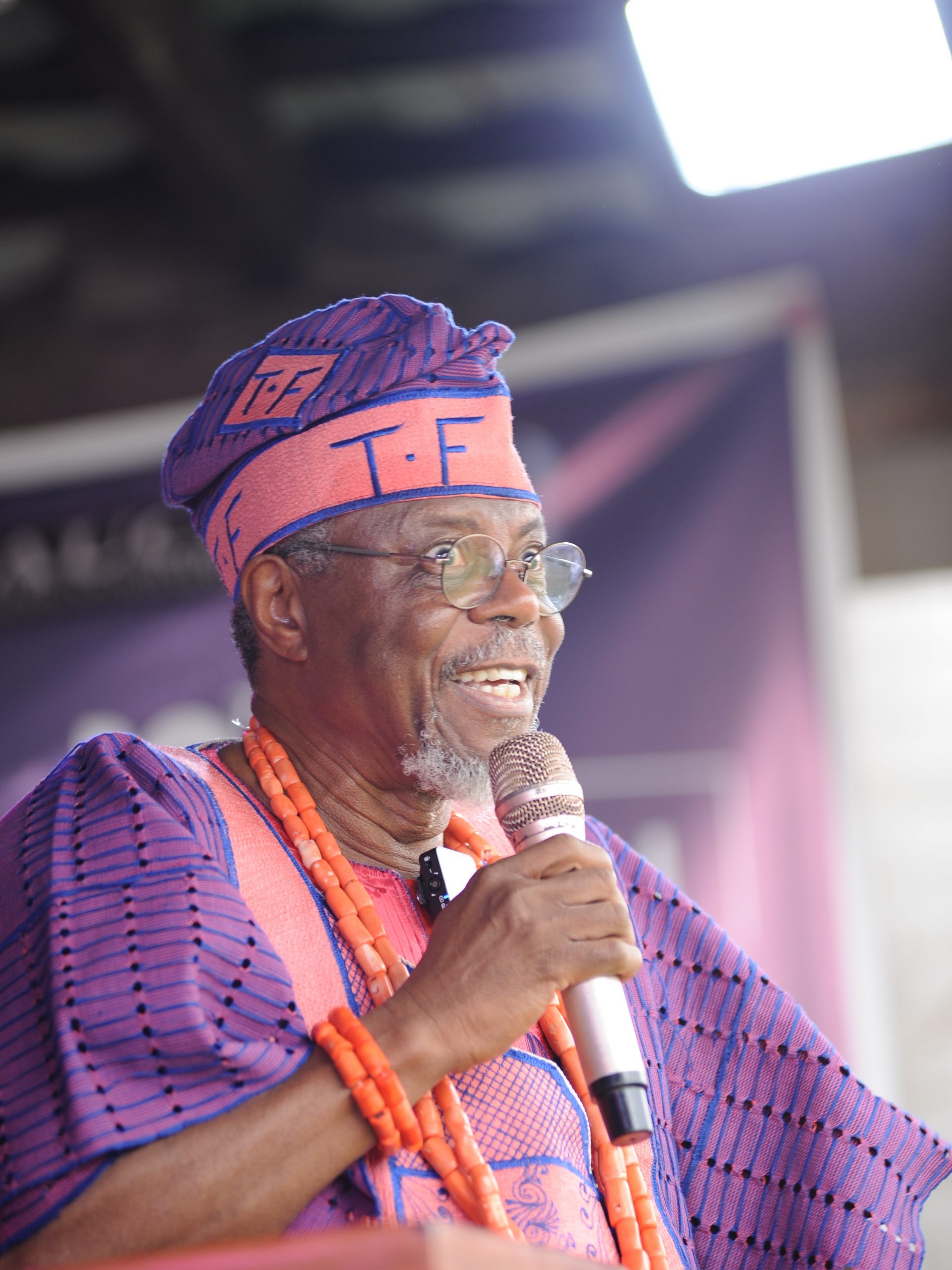By Toyin Falola
Central to social advancement is a vast constellation of ideas that springs from the knowledge of informed individuals. These ideas are not indiscriminately produced; rather, they are accumulated through dedication and a commitment to improving people’s ideas and transforming their vision. The satisfactory achievement of these goals often leads to people generating ideas that become the catalyst for unprecedented growth.
It is important to understand that any level of progress made by humans or any tangible outcomes from their actions are a direct result of their unwavering commitment and perseverance to ensure that they accomplish the things they dedicate themselves to. In their minds, they would have carved out routine activities that would enable them to achieve their desires. Often, these activities require discipline, dedication, and commitment, which are qualities that cannot be externally inspired. This underscores the fact that without a significant amount of discipline and effort, individuals will inevitably encounter difficulties on their paths to achieving any meaningful success in life.

In every profession and career, such dedication and character towards one’s goals cannot be found wanting; otherwise, it would be impossible to accomplish anything tangible in the community of humans. Without a doubt, that seems to be the way of nature, as it is a common experience that success requires a solid commitment. For instance, doctors who perform successful surgical operations did not begin their experimentation in the theatre room. Instead, they start their professional trajectory with the minuscule efforts of burning candles to read in secondary school and during their tertiary education. Lawyers, architects, pilots, captains, and other professionals follow the same trajectory. For some academics, they are often measured by their contributions to debates and the formulation of replicable ideas that lead to policy generation. Although a significant portion of our professional engagement is dedicated to teaching and remoulding members of society from the classroom, not many people give the necessary accolades to teachers for taking up this assignment. In fact, many believe that teaching is a natural calling and that everyone involved in the business is owed some recognition or rewards only by the Almighty.
Without straying, there is a connection between Professor Egbewole’s professional development and the quality of intellect that always follows his identity. His innumerable contributions to scholarship define him today in the community of intellectuals. I find the legal positions of this erudite scholar particularly intriguing in one of his co-published articles, which considers the legal implications of business and contract agreements made before the breakout of the COVID-19 pandemic. This publication piqued my interest because I am aware of the adverse impacts such agreements can have on existing deals.
I have particularly become more knowledgeable about contractual agreements and the implications of unforeseeable circumstances, such as accidents, medical issues, and pandemics, which can potentially affect someone or people in performing the legal responsibilities that their contracts have outlined. In places like the United Arab Emirates, civil law ensures that parties involved in contracts receive necessary assistance in cases of force majeure. This legal framework allows them to seek additional compensation in court for unforeseen emergencies, which also enables them to address problems holistically and not in ways that would affect a single party, considering that none of them is responsible for the emerging challenges.
Conversely, countries like Nigeria, the USA, and some others that practice common law do not afford such privileges. It is intriguing to understand that places like Nigeria do not automatically recognize the challenges faced by parties involved in contracts during unforeseen circumstances. However, this is not because they are especially inhuman but because they lack an understanding of the complexity of human interactions. Therefore, they argue that a force majeure clause must be inserted into the contracts before claims can be made.
I am genuinely satisfied when I learn from people like Professor Egbewole because that knowledge has a significant impact on me and other individuals potentially entering into contractual agreements with clients at different places. More importantly, the enlightenment provided by his other publications cannot be overemphasized. For instance, many now understand the crucial role of the judiciary in helping to develop a healthy and representative democracy–thanks to scholars like Professor Egbewole, who have continued to conduct research that sheds light on these things.
While it is common knowledge that the judiciary enforces laws made by the legislature and carried out by the executive, not many of us in other professions understand the significance of the judiciary system across very critical parts of any country, the absence of which could have dire consequences. For example, if the judiciary fails in its responsibilities, it stands a huge chance of sinking the country’s economic system. This is because not only are they directly expected to undertake the legal obligations that would enhance orderliness, but they are also expected to play a leadership role in achieving the nation’s goals and objectives. Professor Egbewole emphasizes that respecting the rights and freedom of the common people is fundamental to true liberation and economic development, as investors gauge a country’s character based on how it treats its citizens, influencing their decisions on whether to invest there or not.
Many of Professor Egbewole’s other contributions have x-rayed the place of the African court in safeguarding human rights. Through his writings, particularly in relation to human rights, he explored themes relating to the perspective of the African court. This Senior Advocate of Nigeria (SAN) has explained how there are nuances in the position of the people. Among other things, he has always established that, although the African perspective on a legal debate takes a sociocultural dimension, attitudes and attributes have not hindered them from enhancing the legal safety of individuals and protecting their rights.
As such, it is important to note that the progress achieved by African courts contributes to developing a template that has a global appeal for legal matters. This ensures that their jurisprudence will not be ideologically different from what is obtainable in other parts of the world. Professor Egbewole’s passion for ensuring that things are done appropriately has always fueled his energy and zeal to become more than he already is in the scheme of things. This intelligent scholar has facilitated programs aimed at educating the younger members of the bar. He encourages them to gain an understanding of the current situation of the world and continent and draw out legal frameworks that can help position Africa in the right place among other continents. For this accomplished legal professional, while ideas and concepts are increasingly becoming globalized, maintaining ideological boundaries and clarity remains crucial.
Professor Egbewole has contributed immensely to books and journals, earning him a lot of respect, accumulating international support, and confirming that he has inscribed himself into the book of history. Another amazing thing about him is that his intellectual rigour does not end within the legal landscape; it extends to other areas of important academic boundaries. For example, he has made educational contributions addressing labour union issues in the country, geared towards the democratic distribution of power to enhance the effective operation of academic activities and other matters affecting the general populace.
As an example, he stresses that the isolation of the University of Ilorin from active engagement with the Academic Staff Union of Universities (ASUU) is not intended to antagonize the organization. Instead, he acknowledges their significance in advocating for the larger academic community so that staff and students can derive maximum benefits. However, he raises concerns about the strategies and approaches sometimes employed by the association, noting the adverse effects on the students they claim to be representing. As an expert in peace and conflict management, he offers recommendations to address the perennial challenges faced by the Union and the country’s educational system. He concludes that without the implementation of lasting solutions to these myriad challenges, they will continue to affect the country’s educational system in more ways than can be effectively handled.
PS: This is the second of a three-part essay inspired by Professor Wahab Egbewole’s lecture on June 3, 2024, at the University of Abuja on university administration in post-subsidy Nigeria.


